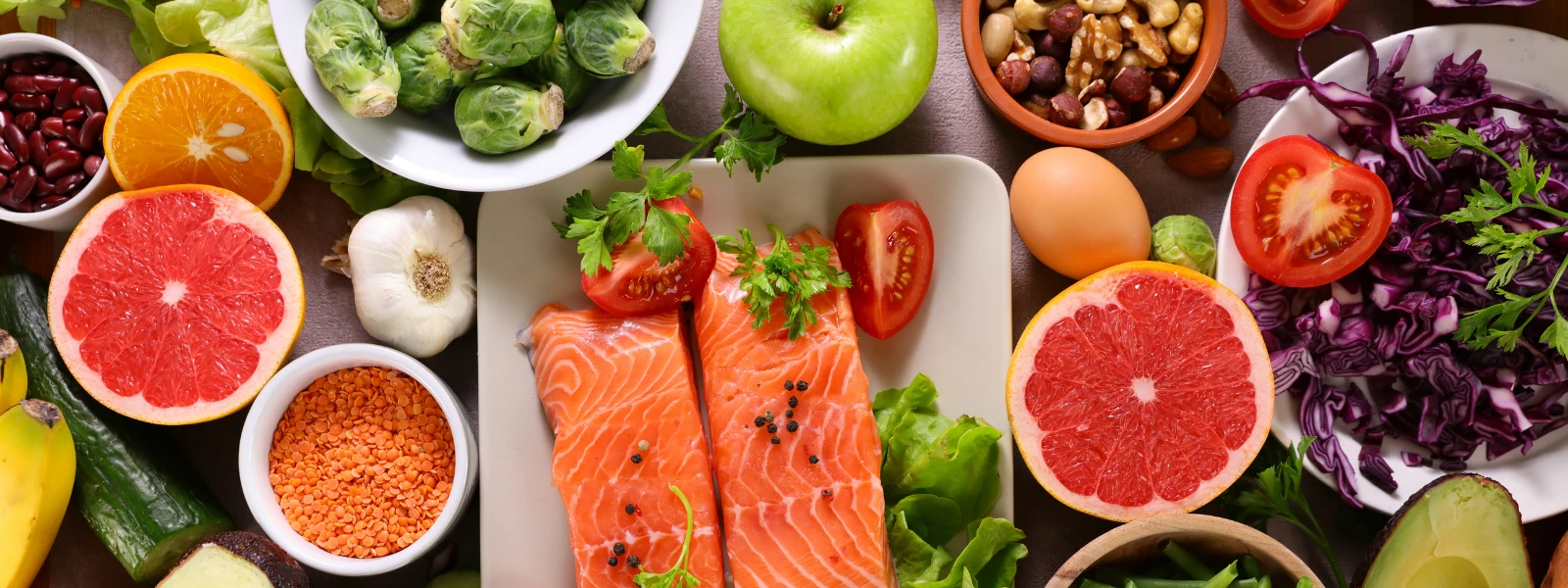Nourish Your Skin: Top Foods for Hydration and Health


Your skin is a reflection of your overall health, and what you eat plays a crucial role in its hydration and appearance. If you're looking to enhance your skin's glow and combat dryness, incorporating the right foods into your diet can make a significant difference. This blog will explore various foods that promote skin hydration, while also emphasizing the importance of holistic wellness and self-expression.
Before we dive into the foods that can help hydrate your skin, it’s essential to understand why skin hydration matters. Hydrated skin is not only more elastic and resilient but also appears plumper and more youthful. When your skin is well-hydrated, it can effectively act as a barrier against environmental stressors, reducing the risk of irritation and premature aging.
Several nutrients are particularly beneficial for maintaining skin hydration:
Omega-3 Fatty Acids: These healthy fats help maintain the skin's lipid barrier, preventing moisture loss.
Antioxidants: Foods rich in antioxidants combat oxidative stress, which can lead to skin damage.
Vitamins: Vitamins A, C, and E are vital for skin health, promoting cell regeneration and hydration.
Water: Staying hydrated is crucial, as water-rich foods can significantly contribute to your skin's moisture levels.
Here’s a curated list of foods that can help you on your journey to achieving hydrated, glowing skin:
Watermelon is not only refreshing but also packed with water—about 92% of its weight. It contains vitamins A, B6, and C, which are essential for skin health. Eating watermelon can help keep your skin hydrated and may even reduce inflammation.
Rich in healthy fats, avocados help maintain skin elasticity and hydration. They are also a great source of vitamins E and C, which protect the skin from oxidative damage. Incorporate avocado into your salads or smoothies for a delicious boost.
Fatty fish like salmon and mackerel are excellent sources of omega-3 fatty acids. These fats are known to reduce inflammation and keep your skin hydrated. Regular consumption of fatty fish can improve skin barrier function and prevent dryness.
Citrus fruits such as oranges, grapefruits, and lemons are high in vitamin C, which is crucial for collagen production. Collagen helps maintain skin structure and hydration. Enjoy citrus fruits as snacks or add them to your water for a refreshing drink.
Nuts and seeds, particularly walnuts and sunflower seeds, are rich in omega-3 fatty acids and vitamin E. These nutrients work together to protect your skin from damage and retain moisture. A handful of mixed nuts can be a great snack option.
Cucumbers are composed of about 95% water, making them an excellent hydrating food. They also contain silica, which is beneficial for skin health. Add cucumber slices to your salads or enjoy them as a refreshing snack.
Sweet potatoes are rich in beta-carotene, which the body converts into vitamin A. This vitamin is essential for skin cell production and repair. Including sweet potatoes in your meals can help improve skin texture and hydration.
Green tea is loaded with antioxidants, particularly catechins, which can enhance skin hydration and protect against UV damage. Enjoy a cup of green tea daily to reap its skin benefits.
Probiotic-rich foods like yogurt can improve gut health, which is closely linked to skin health. A healthy gut can lead to reduced inflammation and better skin hydration. Opt for plain, unsweetened yogurt for the best benefits.
Dark chocolate is not only a delicious treat but also a source of antioxidants. The flavonoids in dark chocolate can improve skin hydration and protect against sun damage. Choose chocolate with at least 70% cocoa for maximum benefits.
While incorporating these foods into your diet is essential for skin hydration, it's also important to focus on overall wellness. Here are some additional tips to enhance your skin's hydration:
Stay Hydrated: Aim to drink at least eight glasses of water a day. Herbal teas and infused waters can also contribute to your hydration goals.
Limit Alcohol and Caffeine: Both can dehydrate your skin, so consume them in moderation.
Practice Mindfulness: Stress can negatively impact your skin. Engage in mindfulness practices such as yoga or meditation to promote overall well-being.
Moisturize Regularly: Use a good quality moisturizer to lock in hydration, especially after cleansing your skin.
At Asaya, we believe in empowering individuals through authentic self-expression and holistic wellness. Embracing diversity in wellness practices allows you to discover what works best for you. Everyone's skin is unique, and understanding your body’s needs is key to achieving optimal hydration.
Finding a sense of community in your wellness journey can be incredibly beneficial. Engaging with others who share similar interests can provide motivation and support. Consider joining local wellness groups, participating in online forums, or following wellness influencers who resonate with your values.
The best foods for skin hydration include watermelon, avocados, fatty fish, citrus fruits, nuts, cucumbers, sweet potatoes, green tea, yogurt, and dark chocolate.
Aiming for at least eight glasses of water a day is a good starting point, but individual needs may vary based on activity level and climate.
While diet plays a significant role in skin hydration, it's essential to combine it with other practices such as proper skincare, hydration, and stress management for optimal results.
Maintaining hydrated skin is a journey that involves nourishing your body with the right foods and embracing holistic wellness practices. By focusing on skin hydration foods and fostering a supportive community, you can empower yourself to achieve your wellness goals. Remember, your skin deserves the best care, and with the right approach, you can enjoy a radiant, healthy glow.